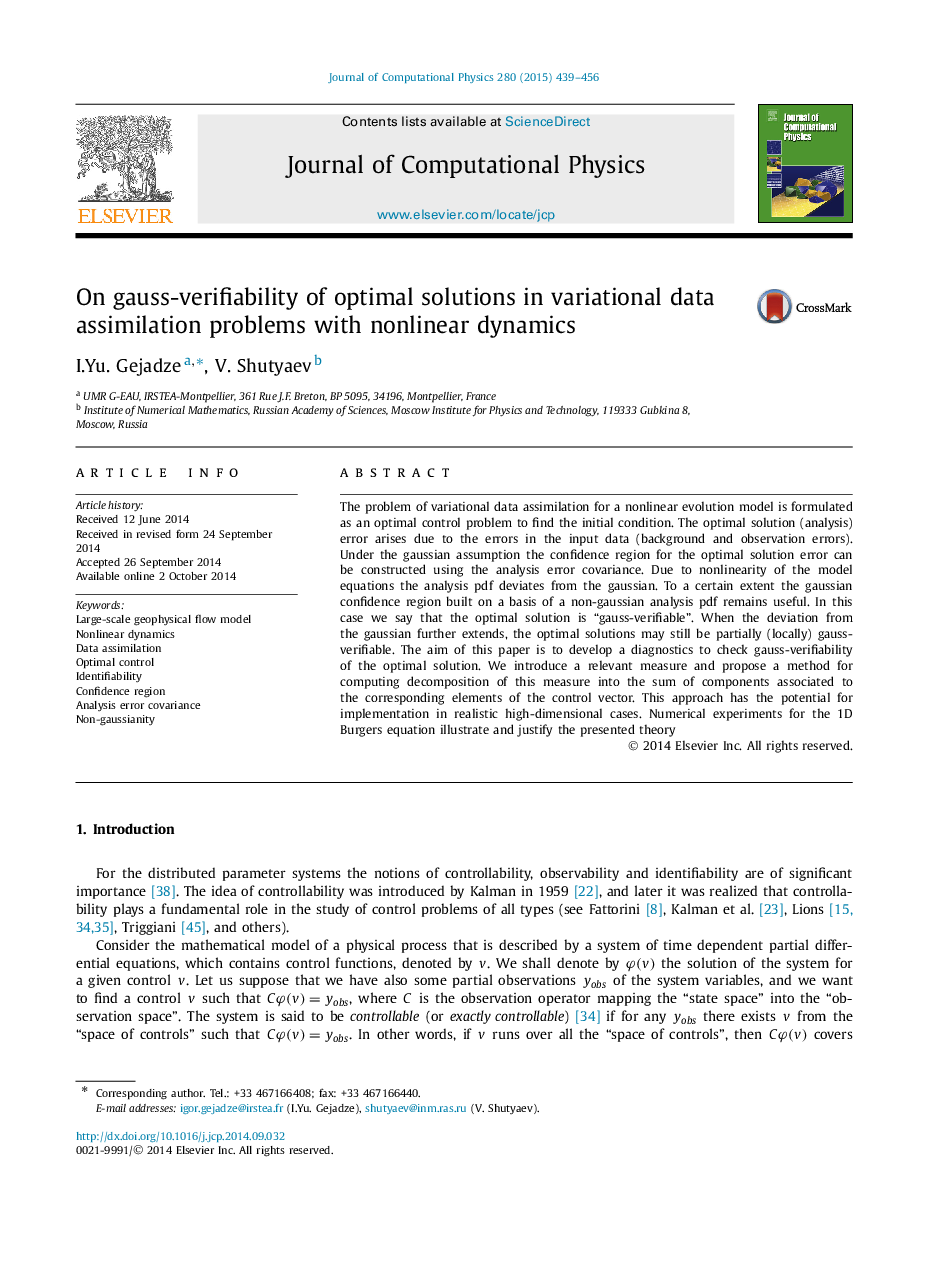| Article ID | Journal | Published Year | Pages | File Type |
|---|---|---|---|---|
| 6932198 | Journal of Computational Physics | 2015 | 18 Pages |
Abstract
The problem of variational data assimilation for a nonlinear evolution model is formulated as an optimal control problem to find the initial condition. The optimal solution (analysis) error arises due to the errors in the input data (background and observation errors). Under the gaussian assumption the confidence region for the optimal solution error can be constructed using the analysis error covariance. Due to nonlinearity of the model equations the analysis pdf deviates from the gaussian. To a certain extent the gaussian confidence region built on a basis of a non-gaussian analysis pdf remains useful. In this case we say that the optimal solution is “gauss-verifiable”. When the deviation from the gaussian further extends, the optimal solutions may still be partially (locally) gauss-verifiable. The aim of this paper is to develop a diagnostics to check gauss-verifiability of the optimal solution. We introduce a relevant measure and propose a method for computing decomposition of this measure into the sum of components associated to the corresponding elements of the control vector. This approach has the potential for implementation in realistic high-dimensional cases. Numerical experiments for the 1D Burgers equation illustrate and justify the presented theory
Keywords
Related Topics
Physical Sciences and Engineering
Computer Science
Computer Science Applications
Authors
I.Yu. Gejadze, V. Shutyaev,
